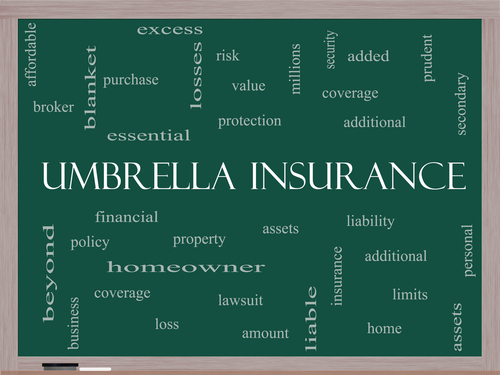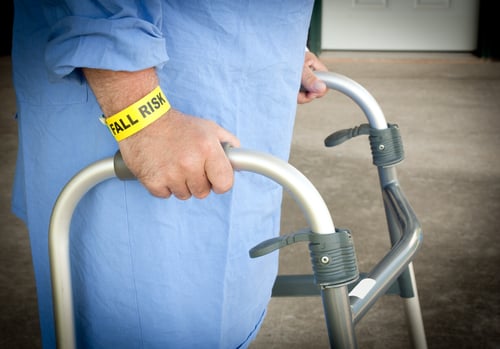
Are you covered? A look at insurance needs over your lifetime
No one disputes the need for insurance throughout our lives. It is a purchase based on current and future needs. Like the umbrella I take when I travel, it’s tucked away – just in case I need it.
When it comes to insurance, the real questions are: what kinds of insurance do you need and when should you purchase them? Your goal should be to get the best coverage that meets your needs at different stages of life. Here are some of the types of insurance you should consider to help manage the unexpected “adventures” you’ll encounter along the way.
The Teen Years
Life Insurance – “Purchasing life insurance should be based on the need of the individuals to provide financial resources to others (dependents), should that individual die,” says Randy DeLopst, CPCU, president of Taurus Insurance & Risk Management Consulting, LLC, “and dependent children don’t fit this criteria.” Even though burial costs could be an issue, DeLopst says families who pay out of pocket still come out ahead in the long run because the costs will be offset by education and living expenses no longer needed to raise a teen.
Health Insurance – Definitely needed, but usually provided as part of the parents’ insurance policies.
Business Insurance – DeLopst says parents should have a personal umbrella policy that provides coverage for incidental business activities a teenager may conduct such as babysitting or being a nanny for the summer, a lawn care or snow removal business, newspaper delivery (they are independent contractors), and playing in a band for income, etc.
Auto Insurance – This is extremely important. Most parents add their children to a family policy, “but don’t try to hide teenage drivers,” cautions claims consultant and author Chris Tidball. “When children turn 18, don’t hesitate to put cars solely in their name and put lower limit policies on those cars.”
20 Something…
“People in this age group find themselves invincible,” says Tidball. “This can be a very costly mistake if faced with a serious illness that can force people into bankruptcy.” Once you’ve moved out onto your own, there are several different types of insurance you should consider.
Life Insurance – How much to purchase depends on if you need to provide for a spouse or significant other and children. There may also be student loan debt, credit cards, or a mortgage to consider. DeLopst recommends going for insurance that provides high limits and a lower premium. Permanent Whole Life and Variable Life insurance that have savings/investment features are probably not necessary at this stage.
Health Insurance – If coverage is not available through an employer, consider purchasing individual/family health insurance with a substantial deductible ($2500-5000) to help control the cost.

Disability Insurance – DeLopst says if disability insurance is not available from an employer, consider purchasing individual disability insurance, since individuals are statistically more likely to be disabled than to die.
Homeowners/Renters – Insurance should be based on living arrangements and home value. Personal watercraft (boats, jet skis and wave runners) and personal recreational vehicle (all-terrain vehicles, snowmobiles, dirt bikes, Segways and other motorized vehicles) should be considered for vehicles used away from home.

Auto Insurance – Several different types of insurance fall under this category:
- Comprehensive – Fairly inexpensive and recommended for most vehicles.
- Collision – More expensive and based upon the cash on hand to replace a vehicle coupled with the actual cash value of the car.
- Under Insured/Uninsured Motorist – This is critical if an accident is caused by an uninsured or under insured motorist. Don’t skimp here, cautions Tidball. “Get as much as your liability limits [allow] and stack the policy if you have multiple vehicles.”
- Personal Insurance Protection/MedPay – PIP is mandatory in some states and MedPay is optional in all. “This is good first-party coverage to have, especially if you don’t have health insurance or have a health deductible to meet,” says Tidball.
- Towing/Rental/Glass – All are fairly low cost types of insurance that can be helpful when needed.
Personal Umbrella Liability Insurance – No longer is a $1 million umbrella policy sufficient. “Even if the individual does not have personal wealth or assets to protect at this young age, they need to protect their future earning potential,” explains DeLopst. “Individuals cannot discharge liability awards through bankruptcy. A serious automobile accident that injures others can financially haunt the negligent driver for the rest of their life.”

For business owners, DeLopst says that a number of employee benefit plans should be considered: group life, group health, group disability, and group accidental death, dismemberment or disability, as well as dental and vision. Small to medium-sized businesses should consider key man life insurance and key man disability insurance, in case one of the executives dies or is injured.
Some other types of property/liability insurance to for business owners to consider include: commercial general liability, business automobile, environmental, worker’s compensation, crime, cybercrime, employment practices, professional liability, directors & officers liability, and kidnap & ransom.
Welcome to your 30s
By this time most individuals have begun to accrue some assets and have children. It’s important that you review any coverage purchased in your 20s to make sure it still meets your current needs. If you didn’t purchase an umbrella policy in your 20s, you should definitely consider it in your 30s.
Professionals will need professional liability insurance and business owners will need a general liability policy in addition to home, health and life insurance.
Life Insurance – Tidball recommends at least twice your salary in coverage since it should provide 1-2 years of your salary for a spouse should something happen. Policy limits should be reviewed, as well as premium costs. DeLopst says this may also be the time to consider some type of permanent whole life or variable life insurance product.

Long-term Care – Even though you may not need long-term care now, DeLopst says it is better to purchase this type of insurance sooner rather than later. “Long-term care insurance involves the accumulation of funds over a long period of time in order to build up an amount adequate to pay for nursing home or in-home care services that may be needed later in life.“
The Busy 40s
By the time you hit your 40s, you are established financially, possibly with a growing family, and at the peak of your earning opportunities. Homeowners, life and health insurance continue to be very important, but growing wiser also means you’re aging. Estate planning comes into play now. DeLopst explains that life insurance can be used to structure an effective estate plan and provide the funds necessary to pay estate taxes, probate costs and other expenses.
Your 50s
At this stage, your kids should be leaving home. Tidball advises having a discussion with them on the importance of basic insurance and then re-evaluating your own situation. Now is also the time to look into secondary health insurance, especially since some policies associated with Obamacare don’t provide the most complete coverage.
If you haven’t purchased life insurance yet, be prepared to spend some serious money at this age. It will also be one of the last opportunities you have to purchase life insurance.
60s and beyond
Your 60s bring retirement (or semi-retirement), as well as some of the challenges of aging. “In addition to all of the coverage you have accrued to date, it is now time to consider long-term care in the event that you go into a nursing home, which can be very expensive,” says Tidball. The need for long-term disability may decrease at this stage, and all insurance policies should be reviewed to make sure they still meet your current needs and lifestyle.
Categories: Blog
